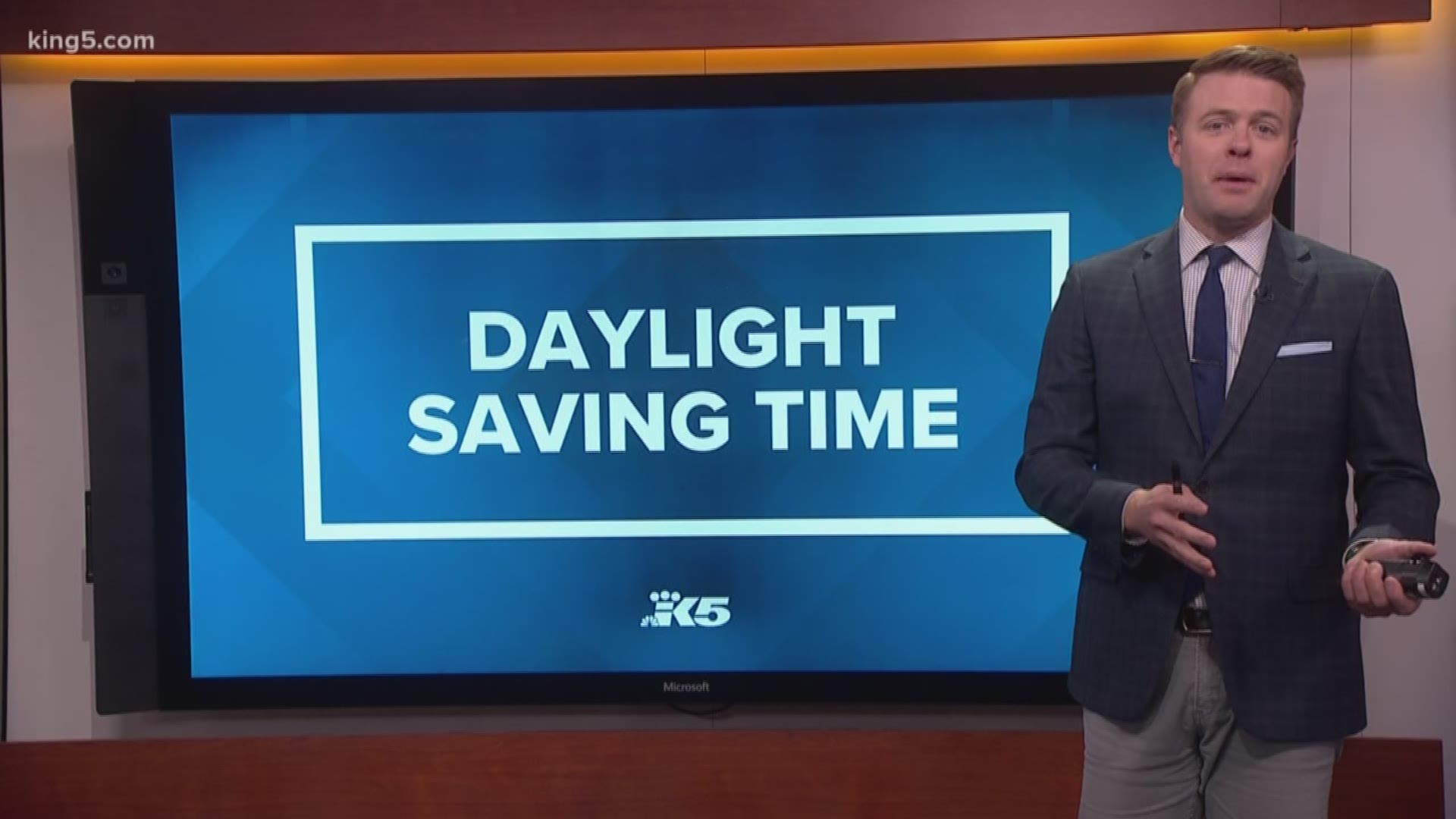Washington lawmakers may have approved permanent Daylight Saving Time last spring, but you will still have to turn your clocks back Nov. 3.
That’s because Washington can't actually do away with standard time unless Congress gives approval. Federal law allows states to opt out of Daylight Saving Time, but it doesn’t allow states to do the opposite. Hawaii and Arizona both operate on standard time year-round.
“This is a time when Congress, a lot of people think is broken, but this is something there’s wide agreement on, so let’s just get it done,” said State Rep. Marcus Riccelli, D-Spokane, who was the prime sponsor of Washington's legislation.
There's three avenues that could allow Washington to observe permanent Daylight Saving Time: Congress could pass a bill allowing states like Washington to make the change, Congress could pass a law making the change to every state at once, or U.S. Secretary of Transportation Elaine Chao could authorize the change on her own.
Supporters of year-round Daylight Saving Time argue that switching clocks negatively impacts our health, and extra hours of daylight in the evenings would reduce deadly crashes and crime.
If Washington were to move to Daylight Saving Time year-round, we would stay on the same time we currently observe from March through November. We would keep later sunsets in the summer, but the change would be more noticed in the winter months. On the Winter Solstice, the sun wouldn’t rise until 8:54 a.m., and it would set at 5:20 p.m.
Washington isn’t the only state that wants to move to Daylight Saving Time permanently. Dozens of states considered changes to time observances this year, according to the National Conference of State Legislatures. Oregon also approved a move to permanent Daylight Saving Time in the spring, and California voters approved the change last year, making the entire west coast open to permanent Daylight Saving Time.
On the national level, Sen. Marco Rubio, R-Fla., has introduced legislation twice that would make Daylight Saving Time permanent. However, the bill died both times.
Although Washington's new law won't make an immediate impact, Riccelli pushed back on claims that it's a meaningless move.
“I think it’s meaningful," he said. "I think unfortunately we’re able to beat the clock so to say on this time around, but I think hopefully by this time next year we’ll end this archaic process of switching the clocks.”

